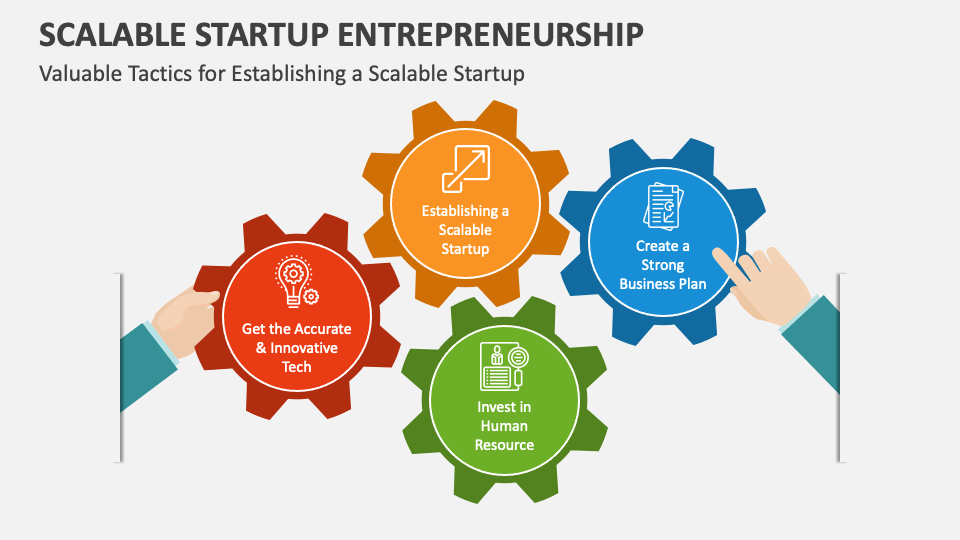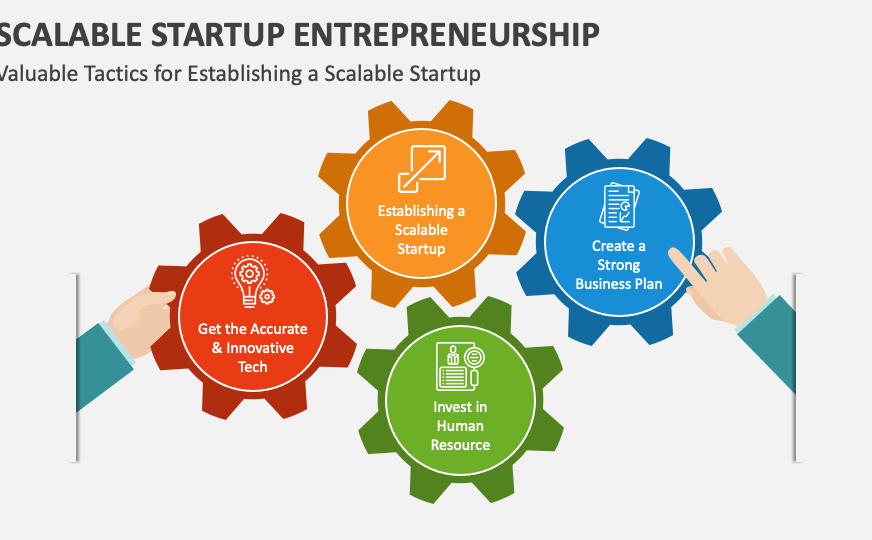Building a Scalable Startup Model takes center stage, this opening passage beckons readers with deep and engaging interview style into a world crafted with good knowledge, ensuring a reading experience that is both absorbing and distinctly original.
In the realm of startups, the ability to scale is paramount for achieving success. This guide delves into the key aspects of creating a scalable startup model, offering insights and strategies for budding entrepreneurs looking to build a strong foundation for their ventures.
Building a Scalable Startup Model
In the world of startups, scalability refers to the ability of a business to grow and expand without being hindered by its structure or resources. It is the capacity to handle increased demand or growth while maintaining or improving efficiency.
Scalability is crucial for the success of a startup because it allows the business to capitalize on opportunities for growth without being limited by its current constraints. A scalable startup model enables a company to adapt to changing market conditions, increase its customer base, and ultimately drive revenue growth.
Defining Scalability in Startups
Scalability in startups involves designing a business model and infrastructure that can accommodate growth without requiring significant changes. This includes the ability to increase production, expand to new markets, and onboard more customers without compromising the quality of products or services.
- Utilizing cloud-based technology and automation to handle increased demand efficiently.
- Implementing scalable pricing models that can adjust to accommodate a growing customer base.
- Building a strong team that can scale with the business and take on new roles as needed.
Challenges in Building a Scalable Startup Model
Building a scalable startup model comes with its own set of challenges that entrepreneurs need to navigate to ensure sustainable growth. Some common challenges include:
- Securing adequate funding to support growth without compromising equity.
- Developing scalable technology infrastructure that can handle increased traffic and data processing.
- Scaling the team effectively to meet the demands of a growing business.
Examples of Successful Scalable Startup Models
There are several examples of startups that have successfully implemented scalable models to achieve rapid growth and market dominance. Some notable examples include:
Uber: By leveraging technology to connect riders with drivers, Uber rapidly scaled its operations globally and disrupted the traditional taxi industry.
Netflix: Through its subscription-based model and focus on original content, Netflix has been able to scale its streaming service to millions of subscribers worldwide.
Airbnb: By creating a platform that connects travelers with unique lodging options, Airbnb has scaled its business to offer accommodations in over 220 countries.
Key Components of a Scalable Startup Model
Building a scalable startup model requires careful consideration of various key components that can drive growth and sustainability. These essential elements are crucial for ensuring that a startup can expand its operations efficiently and effectively.
The Role of Technology in Enhancing Scalability
Technology plays a vital role in enhancing scalability for startups by automating processes, improving efficiency, and enabling seamless communication. Implementing the right technological solutions can streamline operations, reduce costs, and facilitate rapid growth.
Importance of a Solid Business Plan
A solid business plan is essential for creating a scalable startup model as it provides a roadmap for achieving growth objectives. A well-defined business plan Artikels the company’s goals, target market, competitive analysis, and strategies for scaling operations.
Different Approaches to Scaling a Startup
There are various approaches to scaling a startup, each with its own implications and challenges. Some common strategies include organic growth, partnerships, acquisitions, and franchising. Choosing the right approach depends on the company’s resources, market conditions, and long-term goals.
Strategies for Scaling a Startup Model

Scaling a startup model effectively is crucial for long-term success and growth. It requires careful planning, strategic decisions, and the ability to adapt to changing market dynamics. Let’s dive into some key strategies for scaling a startup model.
Significance of Market Research and Customer Feedback
Market research and customer feedback play a vital role in the scaling process of a startup. By conducting thorough market research, startups can identify trends, customer needs, and competitive landscapes. This information is essential for making informed decisions and developing products or services that resonate with the target audience. Customer feedback, on the other hand, provides valuable insights into customer preferences, pain points, and satisfaction levels. By listening to customers and incorporating their feedback, startups can fine-tune their offerings and improve customer experience, ultimately leading to increased scalability.
Role of Partnerships and Collaborations
Partnerships and collaborations can significantly contribute to the scalability of a startup model. By forming strategic partnerships with other businesses, startups can access new markets, technologies, or resources that can accelerate growth. Collaborating with industry experts, influencers, or complementary businesses can also help startups enhance their credibility, reach a wider audience, and drive innovation. Building strong relationships through partnerships can create a mutually beneficial ecosystem that fosters growth and scalability.
Adapting and Pivoting a Startup Model for Scalability, Building a Scalable Startup Model
Adaptability is key when it comes to scaling a startup model. Startups must be willing to pivot their business model, product offerings, or strategies based on feedback, market trends, or competitive pressures. Being open to change and continuously iterating on the startup model allows for experimentation, learning, and optimization. By staying agile and responsive to evolving market conditions, startups can position themselves for sustainable growth and scalability in the long run.
Overcoming Challenges in Building a Scalable Startup Model
In the journey of building a scalable startup model, entrepreneurs often face various challenges that can hinder the growth and expansion of their business. Overcoming these challenges is crucial to ensure the long-term success and sustainability of the startup. Let’s delve into some common pitfalls, strategies for overcoming financial challenges, the importance of a strong team and company culture, and tips for maintaining agility and flexibility while scaling a startup.
Common Pitfalls in Scaling a Startup Model
- Insufficient market research leading to a mismatch between product and market demand.
- Rapid growth without a solid operational foundation in place.
- Lack of scalability in technology infrastructure resulting in performance issues.
- Failure to adapt to changing market trends and customer needs.
Strategies for Overcoming Financial Challenges
- Seeking funding from investors or venture capitalists to support growth initiatives.
- Implementing cost-effective strategies to optimize expenses and maximize resources.
- Exploring alternative sources of funding such as grants or accelerators.
- Building a financial buffer to cushion the impact of unforeseen challenges or setbacks.
The Importance of a Strong Team and Company Culture
- Recruiting top talent with diverse skill sets and a shared vision for the company’s growth.
- Fostering a culture of collaboration, innovation, and continuous learning within the team.
- Empowering employees to take ownership of their roles and contribute to the company’s success.
- Creating a positive work environment that promotes employee engagement and retention.
Tips for Maintaining Agility and Flexibility
- Embracing a lean startup approach to quickly adapt to market changes and customer feedback.
- Encouraging experimentation and iteration to test new ideas and strategies for growth.
- Implementing agile project management methodologies to enhance productivity and responsiveness.
- Remaining open to feedback and being willing to pivot or adjust strategies based on evolving circumstances.
Concluding Remarks
As we conclude our exploration of Building a Scalable Startup Model, it becomes clear that scalability is not just a buzzword but a critical factor in the journey of any startup. By understanding the nuances of scalability and implementing the right strategies, entrepreneurs can pave the way for sustainable growth and long-term success.
Essential Questionnaire
What is scalability in the context of startups?
Scalability refers to the ability of a startup to handle growth without being hindered by its structure or resources.
How important is scalability for the success of a startup?
Scalability is crucial as it allows startups to expand operations, reach more customers, and adapt to changing market conditions effectively.
What are some common challenges faced when building a scalable startup model?
Common challenges include maintaining product quality, securing funding for growth, and balancing rapid expansion with sustainability.
How can technology enhance scalability in a startup model?
Technology can automate processes, improve efficiency, and enable startups to scale their operations with minimal resources.
Why is market research important in the scaling process of a startup?
Market research helps startups understand customer needs, identify growth opportunities, and make informed decisions to drive scalability.







